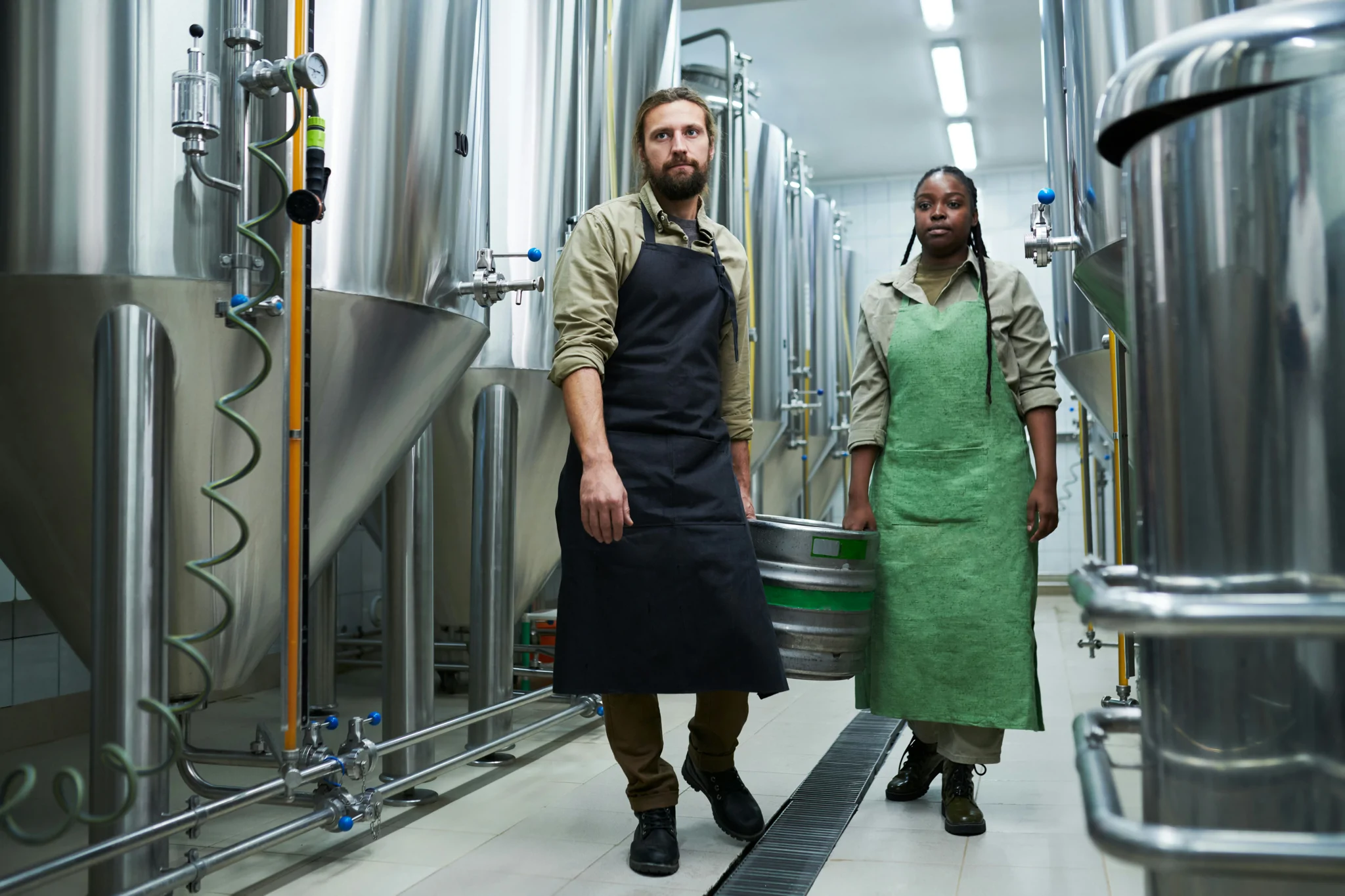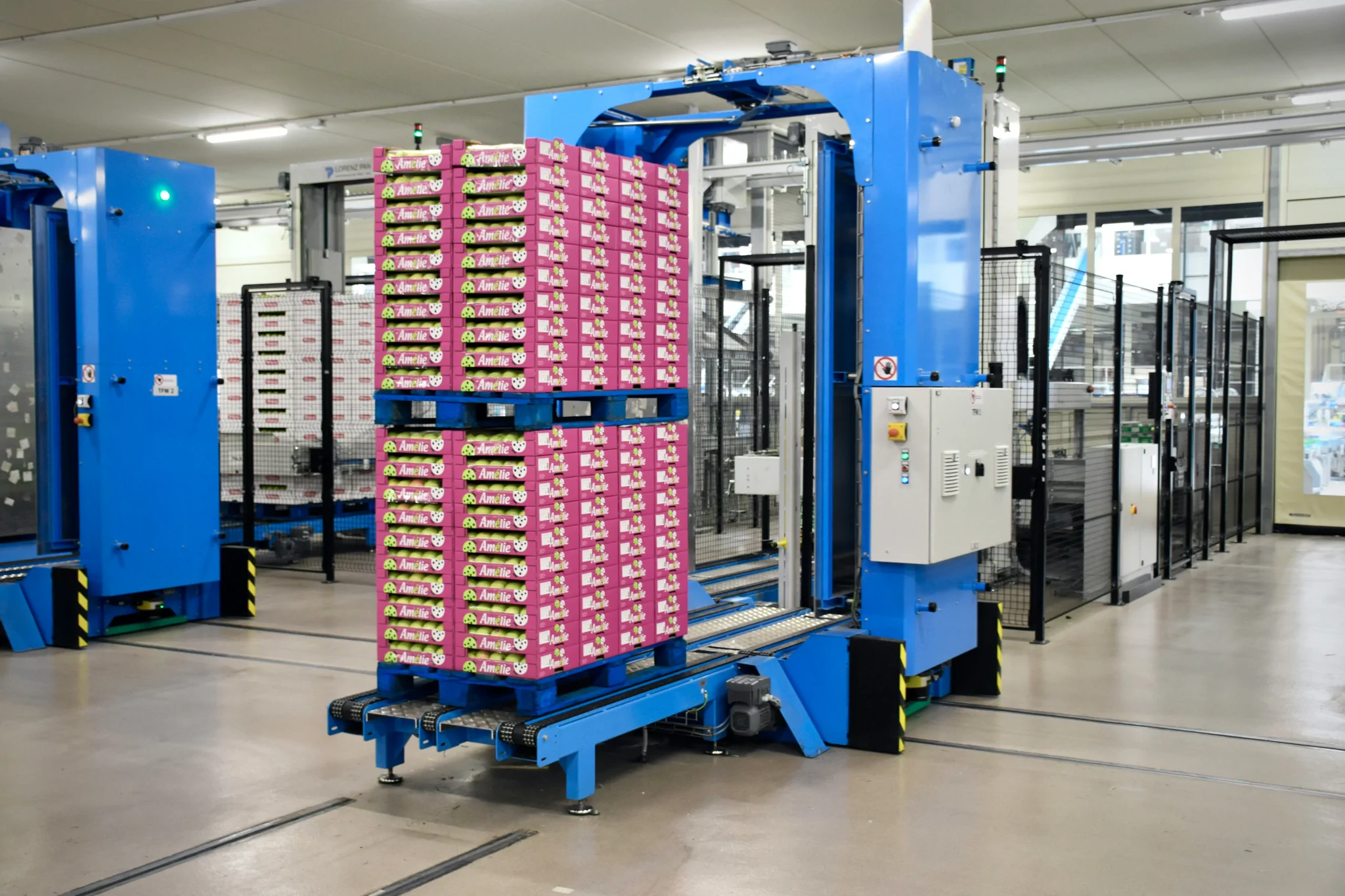Drop off your CV
We'd love to hear from you. Send us your CV and one of our specialist consultants will be in touch.
Strong Agricultural Tradition: Wisconsin boasts a proud heritage in agriculture, food science, and manufacturing, creating a fertile environment for food and beverage companies.
Presence of Major Companies: Eight of the ten largest food companies in the world operate in Wisconsin, benefiting from the state's efficient supply chain and timely distribution.
Vibrant Food Science Community: Wisconsin is globally recognized for its intense focus on food science, with investments in research and development leading to improved practices and standards in food safety and nutrition.

Robust Industry Ecosystem: With over 3,700 food and beverage companies generating combined gross annual revenues of $10 billion, Wisconsin ranks fourth nationally in food and beverage manufacturing talent.
Diverse Production Capabilities: The state is the leading producer of cheese, ginseng, cranberries, snap beans, dry whey, and milk goats in the U.S., showcasing its diverse agricultural strengths.

Supportive Business Environment: Initiatives by the Wisconsin Economic Development Corporation (WEDC) foster entrepreneurship by offering funding, mentorship, and networking opportunities, contributing to a thriving business climate.
Innovative Startup Companies: The state is home to successful startups like Fork Farms and Octopi Brewing, which exemplify Wisconsin’s commitment to innovation, sustainability, and efficient business practices.

Here are some examples of the diverse range of senior roles within the industry:
Food Safety and Compliance Knowledge: Comprehensive understanding of food safety standards and regulatory requirements, ensuring adherence to best practices in manufacturing facilities.
Performance Metrics Analysis: Proficiency in monitoring and analyzing performance metrics to identify efficiency issues, driving continuous improvement initiatives across all operations.
Budgeting and Financial Acumen: Strong ability to manage the budgeting process, including P&L responsibilities, ensuring effective resource allocation and cost control.
Change Management Skills: Ability to act as a change agent, leading cultural transformations within the organization to achieve world-class operational performance.
Knowledge of Food Safety Standards: Expertise in relevant regulations and standards such as HACCP, BRC, and ISO to ensure compliance and safety in food production.
Quality Management Systems: Ability to develop, implement, and manage integrated quality management systems that meet both internal and external standards.
Product Inspection and Testing: Proficiency in inspecting and testing products and production processes to ensure they meet quality specifications and safety requirements.
Data Analysis and Reporting: Skills in collecting, analyzing, and interpreting data to monitor quality performance, identify trends, and produce statistical reports.
Internal and External Auditing: Experience in conducting and coordinating audits (internal and supplier) to assess compliance with quality standards and identify areas for improvement.
Operational Efficiency: Expertise in optimizing production processes to improve yield, reduce costs, and enhance overall operational performance while maintaining quality standards.
Food Safety and Quality Assurance: In-depth knowledge of food safety regulations, Good Manufacturing Practices (GMP), and quality assurance protocols to ensure compliance and product integrity.
Budget Management: Strong skills in preparing and executing budgets, including managing overhead costs and capital expenditures to achieve financial targets.
Data Analysis and Performance Monitoring: Proficiency in collecting and analyzing production data to identify areas for improvement, monitor performance against targets, and implement corrective actions.
Team Leadership and Development: Experience in managing and developing a diverse team, including implementing human resources processes and developing a positive employee relations environment.
Although the industry is experiencing growth, recruitment challenges continue to persist. Here are some key examples:
Geographic Limitations: Manufacturing roles often necessitate candidate relocation to specific regions, which constrains the available talent pool.
Specialized Industry Experience: Securing candidates with relevant industry backgrounds, such as dairy, presents a significant challenge. Positions requiring expertise in niche areas demand experience within the same sector, and at present, there is little flexibility to adopt a more skills-first hiring strategy.
Shortage of Engineering and Technical Skills: There is a notable lack of candidates with mechanical or engineering degrees, which are essential for positions like plant and maintenance managers.
Diversity and Inclusion Efforts: The manufacturing sector remains predominantly male, particularly in engineering roles. While initiatives to attract a more diverse candidate pool are underway, they continue to face obstacles.
Intense Job Market Competition: The rise in counteroffers complicates talent acquisition, exacerbated by salary discrepancies between different companies and locations.
Visa Challenges: Although companies aim to tap into global talent—particularly from countries with similar industries, like New Zealand’s dairy sector—visa hurdles impede these efforts.
Impact of Private Equity: Many food and beverage companies are supported by private equity investments, leading to significant funding for new facilities and innovation. However, this also intensifies the demand for specialized talent.
To ensure the industry continues to thrive with the senior talent it needs, consider the following recruitment strategies:
Companies often seek to attract talent from direct competitors or similar sectors, such as dairy or baking. This approach leverages the existing industry knowledge and experience of candidates, making them more likely to adapt quickly to the new role.
Develop graduate schemes that focus on nurturing young talent by providing comprehensive training, mentorship, and exposure to various functions within the organization. This proactive approach helps build a pipeline of future leaders.
Work with recruitment agencies that specialize in the food and beverage sector. These recruiters possess in-depth knowledge of the industry's technical and operational demands, enabling them to identify candidates who not only fit the skill requirements but also understand the nuances of the sector.
This includes skills such as:
Talent with these skills could be transferred from industries such as:
This includes skills such as:
Talent with these skills could be transferred from industries such as:
This includes skills such as:
Talent with these skills could be transferred from industries such as:
This includes skills such as:
Talent with these skills could be transferred from industries such as:
Whether you're navigating hiring challenges or have expertise to feature, we want to hear from you. Reach out to us below to share your insights, or discuss how we can support your success in the thriving food and beverage sector.